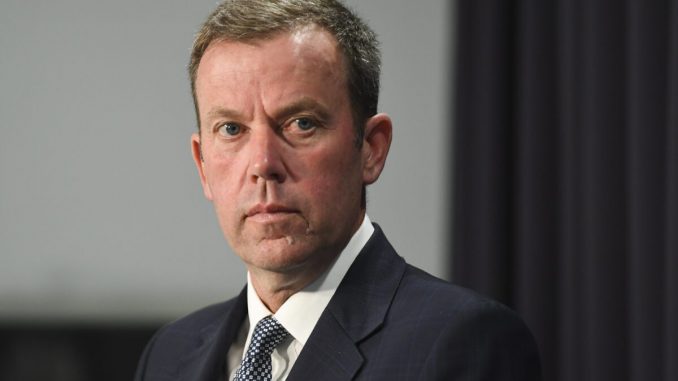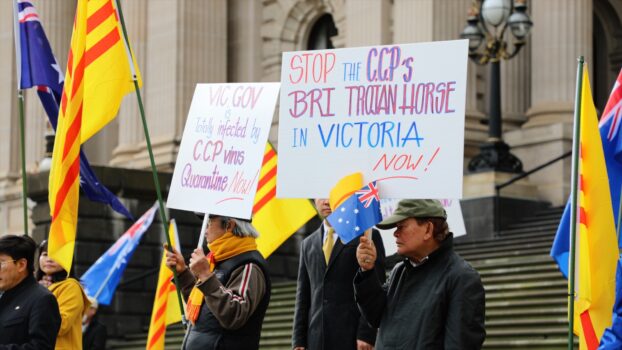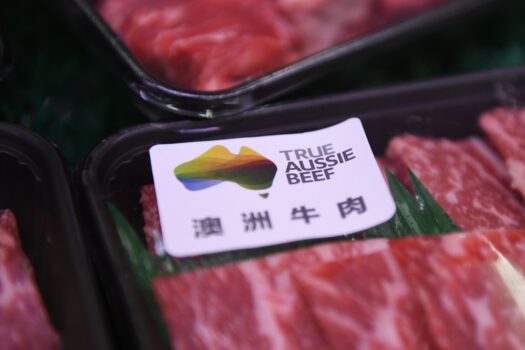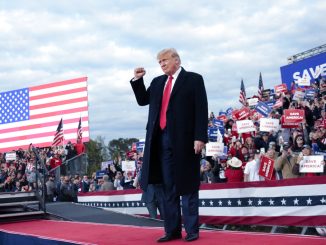
Trade Minister Dan Tehan has expressed disappointment at the suspension of high-level economic dialogue by the Chinese Communist Party (CCP), stressing that the Australian government is always open for talks to resume.
On Thursday, the CCP “indefinitely” suspended all future activities under the China-Australia Strategic Economic Dialogue, following last month’s termination of the Belt and Road Initiative agreement by Foreign Minister Marise Payne.
Tehan told Channel Seven on Friday, “We want to have a dialogue with China; we want to be able to work through our differences.”
“We have a very important economic relationship, which has helped both counties,” he said. “Our hope is we will be able to have a dialogue over time and work through these differences.”
“If decisions are taken which impact on our commercial relationship, ultimately, in the end, it harms both nations,” Tehan added.
The suspension of the Dialogue marks the first material response from Beijing, following Foreign Minister Payne’s cancellation of the Belt and Road Initiative (BRI) deal signed by Victorian Premier Daniel Andrews.

Payne, who is in London for G7 Plus meetings, played up the value of the Dialogue.
“We have been very clear that we were willing and able to participate in an ongoing strategic and economic dialogue—that is ultimately a decision for China,” she told reporters.
“Australia is very ready to engage in dialogue with our counterparts at any level.”
The genesis of the Dialogue began in 2013 under former Prime Minister Julia Gillard as part of a larger effort to build closer ties with Beijing. The first meeting was held in 2014 with her successor Tony Abbott.
The third and last Dialogue was held in 2017 with Prime Minister Scott Morrison, who was treasurer at the time.
Bilateral talks largely froze throughout 2020, after Beijing launched an extensive trade and economic coercion campaign against Australia in response to calls from the Morrison government to investigate the origins of COVID-19.
This has led experts to label Beijing’s move as mere “symbolism,” saying the CCP has effectively “run out of ammunition” in its economic coercion tactics against Australia.
“By going ‘thermonuclear’ on trade in 2020, they now have no substantive ways to punish Australia anymore and have to scrap around for impact-free acts of pure symbolism,” Jeffrey Wilson, research director of the Perth USAsia Centre, wrote on Twitter.

“China has placed sanctions against practically all Australian exports it can, investment has collapsed, and intergovernmental discussions are non-existent,” he added. “It now has no substantive leverage over Australia and has to resort to largely meaningless acts of symbolism.”
James Laurenceson, director of the Australia-China Relations Institute at the University of Technology Sydney, warned that symbolism mattered greatly in international politics.
“Symbolism, after all, was what motivated the Australian government to tear up Victoria’s Belt and Road Initiative agreement with China,” he wrote in The Conversation.
“The deal was not legally binding and didn’t commit the Victorian government to anything,” he added. “But the federal government wanted to send a message: it would do this and not be deterred by the threat of Chinese retaliation.”
He warned that Beijing could exercise its “nuclear option” and potentially axe the China–Australia Free Trade Agreement.
Meanwhile, Australian exporters have spent the last few months working to diversify their trade markets away from China, to reduce risk and exposure to Beijing’s actions.
Wine, barley, salmon, and coal exporters have been successful at finding new homes for their product.





Be the first to comment